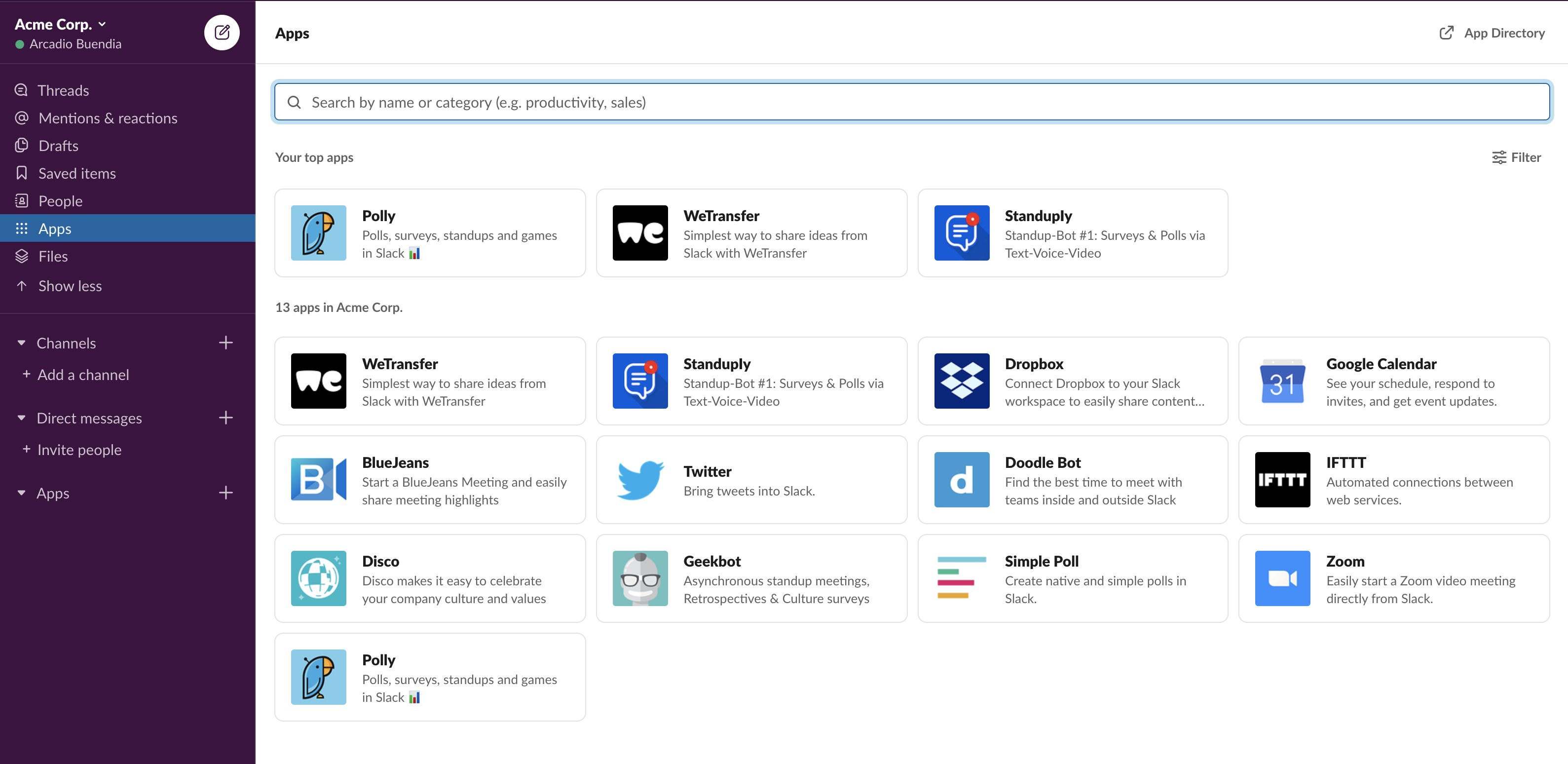As the first work week of 2021 has kicked off today, Slack is seeing what looks like a widespread outage that’s preventing users from sending messages, loading channels, or in some cases connecting at all.
12:10 pm PT:
Slack Mac App
For any customers unable to access Slack, please refresh using CMD/CTRL + SHIFT + O. If you encounter any trouble, please let us know at feedback@slack.com.
We’ll have a separate post on this site for the outstanding calendar apps and email notifications trouble.
We’re truly sorry for the disruption today. We’ll be back with a summary of this issue.
Mac App Store is the simplest way to find and download apps for your Mac. To download Slack from the Mac App Store, you need a Mac with OS X 10.6.6 or later. The option is temporary and resets when you close out the app. It also doesn’t work for now in the iOS app. But you can have fun with it on your Mac or PC Slack app or the web version.
Note: we have edited the message to ask users to refresh their client entirely, as opposed to the reload instructions we shared before (CMD/CTRL + R).
11:28 am PT:
We’re seeing improvements with error rates on our side, and we believe affected customers should be able to access Slack.
We’re continuing to work to resolve the trouble with calendar apps and email notifications.
10:51 am PT:
For those customers who are unable to access Slack (e.g. seeing a blank screen or error), please try reloading (CTRL/CMD + R). Otherwise, please hold off on reloading, as this could prevent you from accessing Slack.
In addition, Google Calendar and Outlook Calendar aren’t working as expected, and some email notifications (e.g. a notification of a new direct message in Slack) are failing to send.
10:00 am PT:“Some customers may be able to connect, but may also experience degraded performance. We’re continuing to work to resolve the issue.”
9:29 am PT: Slack says “While the issue is largely still ongoing, we believe some customers may see improvement in connecting to Slack after a refresh (CTRL/CMD + R).”
8:52 am PT: No luck yet with Slack solving the outage or discovering more…
Update 8:20 am PT: Slack shared that this is officially an outage and “All hands are on deck.” We’ll learn more in about 30 minutes.
We’re continuing to investigate connection issues for customers, and have upgraded the incident on our side to reflect an outage in service. All hands are on deck on our end to further investigate. We’ll be back in a half hour to keep you posted.
As we often see with Slack outages, today’s issues come and go for some with delays to receiving and sending messages or seeing failed messages.
However, it sounds like the Slack downtime is worse for some as the company notes that “Customers may experience issues connecting to Slack to loading channels at this time.”
No word yet on what’s causing the problem but Slack is working on a solution.
The outage started around 7 am PT this morning. Thousands of users are reporting the issue on Down Detector, with 70% of them so far noting they’re not able to connect to Slack and 28% having trouble sending messages. There are reports coming in from all over the world about the outage.
FTC: We use income earning auto affiliate links.More.

UPDATE 7/15/2019 – Please see my updated post on this. Slack has provided a plist-based method, finally!
If you deploy Slack with anything that isn’t VPP, you’ve probably run across the annoying instance where Slack will constantly prompt your users for admin credentials to update itself. This is all well and good if the user has admin rights, but if not, they’re stuck hitting cancel until you push a new version. Awful.
Some time ago a GitHub issue was opened for the update framework (Squirrel) and a long discussion was had about how MacAdmins were holding it wrong. That was updated today and this functionality has been added, albeit in a strange and poorly documented way.
The key is to set an environmental variable called SLACK_NO_AUTO_UPDATES, which the update mechanism will see and therefore skip the updates. The code in question:
Here’s how to enable this in your environment. Note, I strongly recommend you only do this if you’ll be tightly managing updates using a management toolset such as Munki, Jamf, or similar. Slack is essentially a web browser, and you want to make sure it has the latest updates as security problems pop up.
Take this gist, and save it into /Library/LaunchAgents as an appropriately named plist.
Slack Mac Application
Load it and restart Slack, and you’re good to go. Note that any open apps (or apps that are re-opened after a reboot) will not see this, so you’ll need to ensure that Slack is fully quit and reopened somehow. You can test this by doing “env | grep SLACK_NO_AUTO_UPDATES” in your terminal – you should see the variable set.
Slack Macbook App
edit: thank you Greg Neagle for pointing out that launchd doesn’t accept spaces in between commands. A previous version of the plist gist contained spaces, and while it worked, it’s not the most compatible solution.
